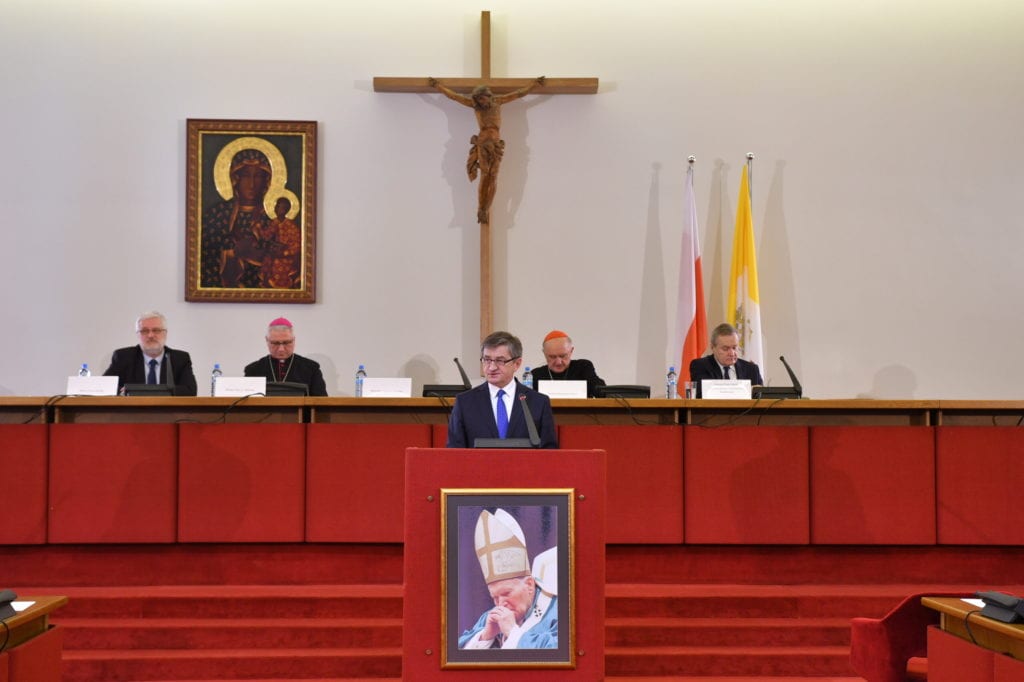Today we remember the first pilgrimage of John Paul II to his homeland, which also had important consequences for the rebirth and development of Polish parliamentarism. We remember the words spoken on June 2, 1979 not far from here on Victory Square: "The history of a nation deserves to be properly evaluated according to what it has contributed to the development of man and humanity, to his consciousness, heart, conscience, and it is impossible to understand man otherwise than in this community which is his nation," said the Speaker of the Sejm Marek Kuchciński during the first day of the conference "John Paul II: Foundations of Democracy.
In the headquarters of the Secretariat of the Polish Bishops' Conference, the discussion focused on the historical role of John Paul II in regaining freedom by the nations of Central and Eastern Europe and the axiological foundations on which democracy should be based.
- We now take for granted the enormous influence of the Pope and the Catholic Church on the process of the fall of communism and the emergence of sovereign, democratic states in Central and Eastern Europe. By supporting these changes John Paul II told us how to build a just society, how to consolidate the relationship between politics and ethics. He consistently made us aware that democracy must have axiological foundations. He spoke of the danger of 'allying democracy with ethical relativism', that 'democracy without values easily turns into overt or disguised totalitarianism'," said Marek Kuchciński.
The Speaker of the Sejm pointed out that the debate about John Paul II's reflections on contemporary Poland and the principles of building our democracy is particularly important for the Polish Parliament. - This timeliness is clearly visible when we talk about the tasks facing us. The first task is to care for the values constituting the foundation of democracy: dignity and respect for human rights and the common good, for the achievement of which it is necessary to adopt the principle of solidarity, also in political and social activity. The second task is to build on the axiological foundation of a good democratic state. The third task concerns the place of Poland in Europe - added the Speaker of the Sejm.
During an educational meeting at the headquarters of the Secretariat of the Polish Bishops' Conference in Warsaw a catalog of axiological foundations was recalled. Among other things, reference was made to the historic papal speech in Parliament on 11 June 1999.
- At that time, the Holy Father said "I know that after long years of lack of full state sovereignty and authentic public life, it is not an easy thing to create a new democratic order and institutional order," Marshal Kuchciński recalled.
Among the topics of the two-day debate (30-31 May) there will also be a model of the Church's presence in public reality, which exists in Poland thanks to the Concordat and the importance of Poland's relationship with the Holy See. There will also be a reflection on the place of Poland in Europe and the vision of Europe presented by John Paul II, in reference to its Christian roots.
The event is organized by the Foundation for Catholic Information Exchange in conjunction with Catholic News Agency.
CIS
Photo: Lukasz Blasikiewicz



